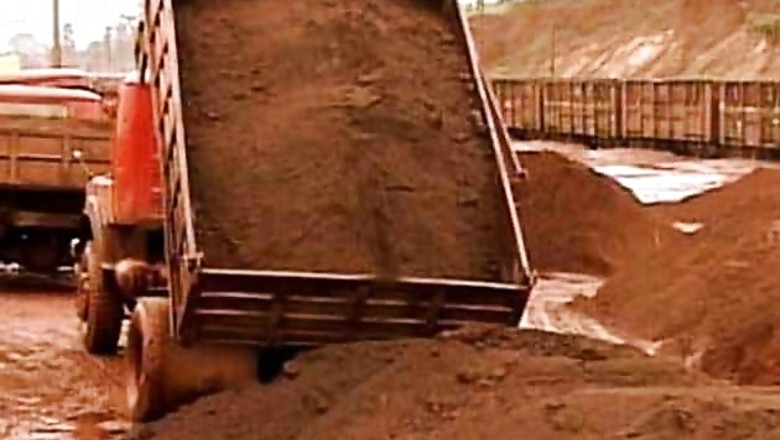
views
New Delhi: Expressing concern over growing illegal mining in the country, the Supreme Court has ruled that the states and Union Territories can now grant leases for mining minor minerals in less than 5 hectares or renew them only after prior approval from the Union Environment Ministry.
A special forest bench of justices KS Radhakrishnan and CK Prasad directed the states and UTs to give effect to the various recommendations and guidelines framed by the Ministry of Environment and Forests in its March 2010 report and submit compliance reports before the court within six months.
"Over the years, India's rivers and riparian ecology have been badly affected by the alarming rate of unrestricted sand mining which damage the ecosystem of rivers and the safety of bridges, weakens river beds, destroys natural habitats of organisms living on the river beds, affects fish breeding and migration, spells disaster for the conservation of many bird species and increases saline water in the rivers," said Justice Radhakrishnan, writing the judgement for the bench.
The apex court passed the directions while dealing with the auction notice issued by the Haryana Government on June 3 and August 8 last years besides alleged illegal minings in UP and Rajasthan.
The bench also expressed surprise at the report submitted by the Central Empowered Committee (CEC) on January 4, 2012, in which no mention was made of the illegal mining activities and the serious ecological dangers posed by it.
"The report, however, is silent with regard to the disturbing trend of serious illegal and unrestricted upstream, in-stream and flood plain sand mining activities and the prevailing degree of degradation of the sites and the environment, especially on the river beds mentioned earlier," the apex court.
The apex court said while it agreed that excavation of sand and minerals were necessary for growing construction and infrastructural activities, yet, the same cannot be permitted at the cost of threat to biodiversity, marine life and environment.
"We have no materials before us to come to the conclusion that the removal of minor mineral boulder, gravel, sand quarries etc covered by the auction notices in the places notified therein and also in the river beds of Yamuna, Ghaggar, Tangri, Markanda, Krishnavati river basin, Dohan river basin etc would not cause environmental degradation or threat to the biodiversity, destroy riverine vegetation, cause erosion, pollute water sources etc.
"Sand mining on either side of the rivers, upstream and in-stream, is one of the causes for environmental degradation and also a threat to the biodiversity.
"Extraction of alluvial material from within or near a stream bed has a direct impact on the stream s physical habitat characteristics," the bench observed.
The apex court said lack of proper planning and sand management cause disturbance of marine ecosystem and also upset the ability of natural marine processes to replenish the sand.
"We are expressing our deep concern since we are faced with a situation where the auction notices dated June 3, 2011 and August 8, 2011 have permitted quarrying mining and removal of sand from in-stream and upstream of several rivers, which may have serious environmental impact on ephemeral, seasonal and perennial rivers and river beds and sand extraction may have an adverse effect on bio-diversity as well.
"Further it may also lead to bed degradation and sedimentation having a negative effect on the aquatic life," the bench said.




















Comments
0 comment